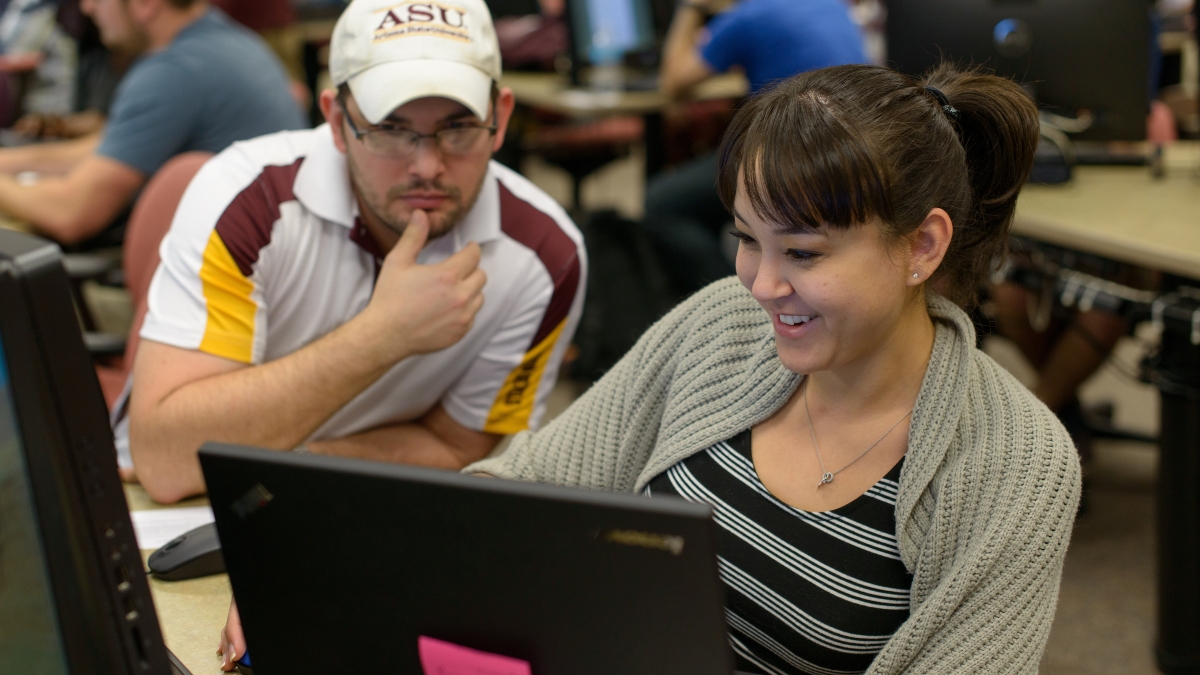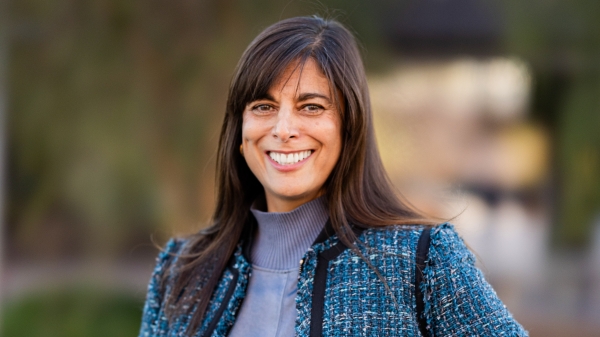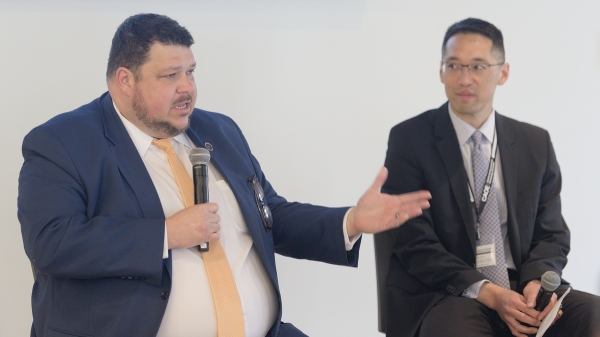ASU online education efforts click into focus
Reflect on internet progress of nation's most innovative school as education groups push National Online Learning Day

A cluster of education groups and nonprofits are working to create momentum for a day to celebrate the advance of computer classes into the mainstream, carving out Sept. 15 as “National Online Learning Day.”
The first push consists primarily of a social media campaign supported by parenting magazines and organizations that back charter education and homeschools, touting the “convenience and personalization for every learner” that online classes provide.
Arizona State University isn’t connected to the nascent effort, but it’s an opportunity to examine and highlight how the nation’s most innovative school has played a pioneering role in bringing accredited online classes to higher education.
Online degree programs
ASU has been named the nation’s most innovative school for the second consecutive year — ahead of Nos. 2 and 3 Stanford and MIT — and university officials say advances in online learning factored into the ranking from U.S. News & World Report.
Starting with the question “what if you could earn your degree from a world-renowned university, at any time, from anywhere online?” ASU has mapped out over 100 degree programs available completely on the web.
ASU President Michael Crow has said the programs remove the barriers of location and time an expand “access to the educational opportunities of a great research university and all of the faculty that we have assembled.”
Global Freshman Academy
When the Global Freshman Academy launched in 2015 with Intro to Solar Systems Astronomy, more than 12,000 students from more than 160 nations logged in.
The academy — a partnership with edX, which provides free internet classes — has since expanded giving students anywhere the opportunity to take college-level courses. There are no applications or transcripts required and enrollment is instant. Also, students don’t have to pay for credit until they’re sure they’ll pass the course.
It’s an initiative aimed at access. Phil Regier, head of ASU’s education innovation efforts, said at launch that the academy represented a “new model, showing that a university does not have to be marked by exclusivity.”
Starbucks
ASU has partnered with Starbuck to provide 100 percent tuition reimbursement to each one of the coffee-giant’s eligible U.S. employees.
Thousands of Starbucks workers have enrolled in the program since it launched last year. The company said it planned to invest $250 million to help at least 25,000 employees graduate by 2025.
KED Talks
From the university’s Knowledge Enterprise Development, KEDtalks are billed as "conversations for the curious," which create opportunities for university experts to share ideas through discussions with a wider audience.
The planned series begins with Sethuraman Panchanathan, executive vice president of ASU’s Knowledge Enterprise Development wing and chief research and innovation officer, defining “knowledge enterprise” as the production of “people, ideas and things.” He then expands on the impact this model of thinking has created in areas from education to cybersecurity.
Top photo by Andy DeLisle/ASU
More Science and technology

The science behind chronic stress
Stress comes in many shapes and sizes. There’s the everyday stress of preparing for a final exam or being stuck in traffic. And the more significant stress of losing a friend, family member,…

ASU planetary scientist to be inducted into the National Academy of Sciences
The National Academy of Sciences is inducting School of Earth and Space Exploration Director Meenakshi Wadhwa into the 2023 class of new members for her pioneering work in planetary sciences and…

Unlocking the potential of AI for homeland security
“Can we do what we're doing now cheaper, more efficiently, more effectively?” Adam Cox, director in the Office of Strategy and Policy at the Department of Homeland Security Science and Technology…